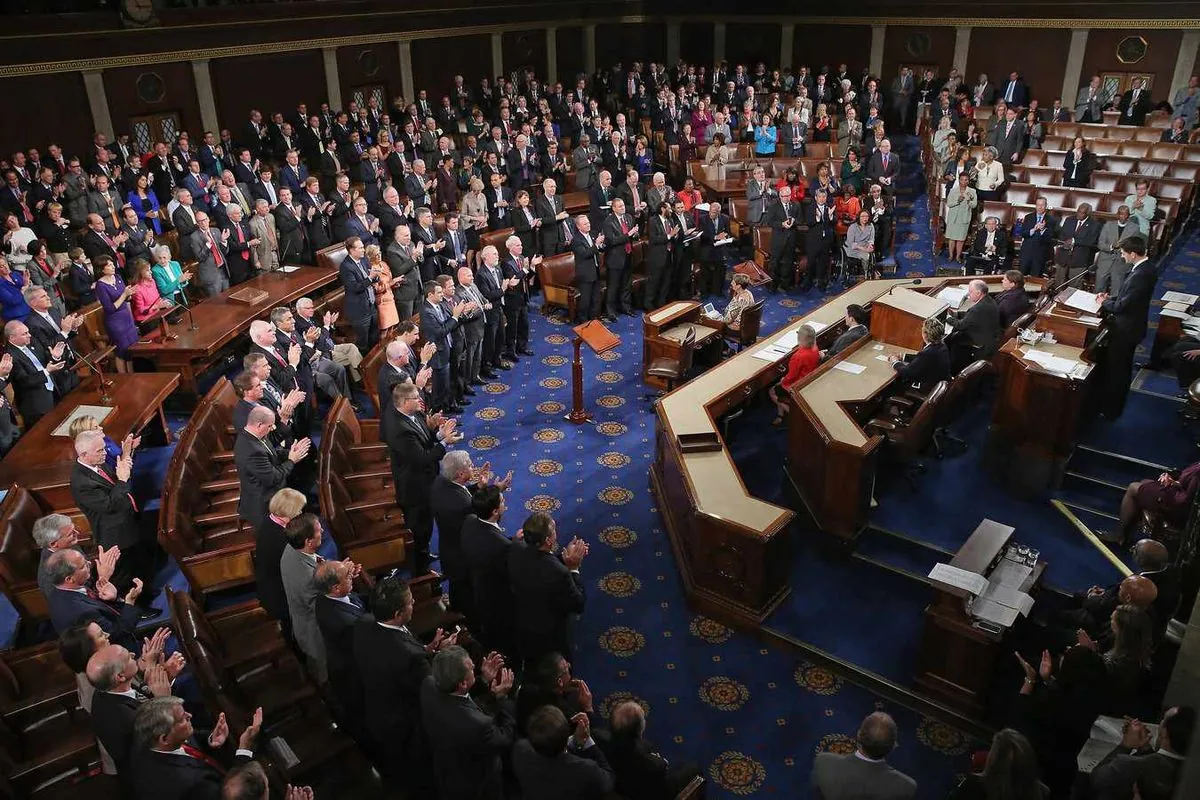House Race Tightens: Both Parties Claim Momentum in Close Contest
Analysis shows a narrow battleground for House control, with each party finding positives. Historical context reveals an era of slim majorities, as fundraising and Harris's campaign impact the race.

In a display of political maneuvering, both the Democratic and Republican parties have seized upon the same analysis to claim momentum in the tightly contested race for control of the U.S. House of Representatives. This development underscores the intense competition for what is shaping up to be one of the closest battles for House majority in recent history.
The Democratic Congressional Campaign Committee and the National Republican Congressional Committee each interpreted the latest report from Inside Elections to support their respective narratives. This scenario illustrates the current state of the House race, which analysts describe as resembling trench warfare.
Two prominent political analysis organizations, Inside Elections with Nathan L. Gonzales and the Cook Political Report with Amy Walter, have released assessments that paint a picture of a highly competitive landscape. Both reports suggest that while Republicans maintain a slight edge in retaining the House, the range of potential outcomes is remarkably narrow.
Inside Elections estimates that the final result could fall anywhere between a Democratic gain of five seats to a Republican gain of five seats. Similarly, the Cook Report anticipates a single-digit gain for either party. This tight range reflects the current composition of the House, where Republicans hold 221 seats and Democrats 214, with a few vacancies in safe districts for each party.

The historical context of House majorities adds another layer of intrigue to the current race. Since the end of World War II, the majority party has typically held at least 225 seats in all but five elections. The current era bears resemblance to the late 1990s and early 2000s, when Republicans maintained narrow majorities for four consecutive elections.
"Republicans are still slight favorites to hold the House"
Both parties have adjusted their strategies in light of recent electoral experiences. The DCCC and NRCC have narrowed their focus to a smaller number of competitive districts compared to previous cycles. The true battleground may encompass fewer than 35 seats, with redistricting in several states already likely to shift a handful of seats between parties.
Kamala Harris's strong campaign performance has bolstered Democratic prospects, potentially improving the party's chances in House races due to limited ticket splitting. However, Republicans had been on track to expand their majority before Joe Biden's withdrawal from the presidential race on July 21, 2024.
Fundraising has emerged as a critical factor in the race. Democratic incumbents hold a significant cash advantage over their Republican challengers, allowing the party to allocate more resources to offensive strategies. Conversely, Republican incumbents in competitive races face a smaller financial edge over their Democratic opponents.
The outcome of the presidential contest, including Donald Trump's performance in the recent debate on September 10, 2024, could significantly influence down-ballot races. With just over seven weeks until the November 5, 2024 election, the battle for House control remains fluid and intensely competitive.
Regardless of which party emerges victorious, the resulting majority is likely to be narrow and challenging to manage. This potential scenario reflects the broader political landscape in the United States, characterized by deep divisions and closely contested elections across multiple levels of government.


































